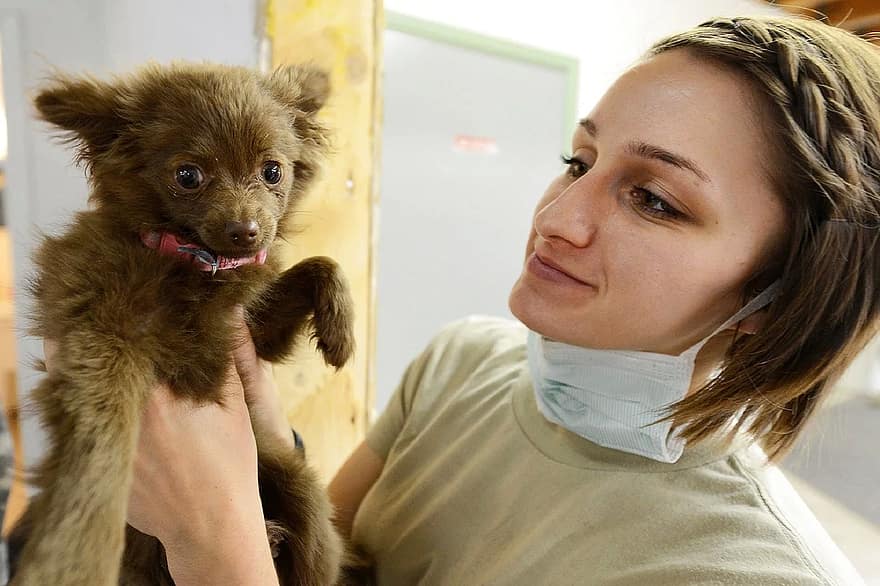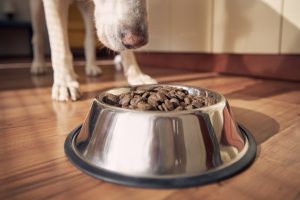A Comprehensive Guide to Assessing Your Dog’s Health

Dogs, our faithful companions, rely on us to ensure they lead happy and healthy lives. As responsible pet owners, it is crucial to regularly assess our furry friends’ well-being, from nose to tail. This comprehensive guide will empower you to be proactive in monitoring your dog’s health, providing a deeper understanding and insight into the intricacies of canine wellness.
Understanding Normal Vital Signs
Before delving into the assessment process, it’s beneficial to familiarize yourself with your dog’s normal vital signs. This knowledge serves as a baseline for comparison as you monitor your dog’s health:
Body Temperature
A dog’s normal body temperature falls within the range of 101 to 102.5 degrees Fahrenheit (38.3 to 39.2 degrees Celsius). Regularly checking your dog’s temperature can help identify early signs of illness.
Heart Rate
A healthy adult dog’s heart rate typically ranges from 60 to 140 beats per minute, depending on factors such as breed and size. Monitoring your dog’s heart rate during various activities provides valuable insights into their cardiovascular health.
Respiratory Rate
Normal respiratory rates for dogs generally fall between 10 to 30 breaths per minute. Understanding your dog’s breathing patterns aids in recognizing potential respiratory issues.
Fur and Skin
Coat Condition
Beyond aesthetics, a glossy and smooth coat is an indicator of good health. Regular grooming sessions not only keep your dog looking their best but also allow you to identify any abnormalities, such as lumps or bumps.
Skin Texture
Healthy skin should be supple and free from dryness or flakiness. Regularly inspect your dog’s skin for any signs of redness, swelling, or sores, which could indicate underlying issues.
Eyes, Ears, and Nose

Clear Eyes
Bright and clear eyes without discharge or redness are positive indicators of ocular health. Any cloudiness or persistent tearing may signify an underlying problem, necessitating a veterinarian’s attention.
Clean Ears
Regularly inspecting your dog’s ears for redness, swelling, or foul odors is crucial for preventing ear infections. Routine cleaning, especially for breeds prone to ear issues, helps maintain ear health.
Moist Nose
Contrary to popular belief, a dry nose does not necessarily indicate illness. However, a consistently runny or crusty nose may warrant a veterinary examination.
Oral Health
Healthy Gums
Pink gums, free from swelling or discoloration, indicate good oral health. Foul breath or the presence of excessive tartar may signal dental issues, which can impact overall well-being.
Teeth Condition
Clean, white teeth are indicative of good dental health. Regular dental care, including brushing and professional cleanings, is essential for preventing dental problems that can lead to systemic health issues.
Mobility and Behavior
Normal Activity Levels
Monitoring your dog’s energy levels and enthusiasm for play and walks provides insight into their overall well-being. Any sudden changes may signal a problem that requires investigation.
Gait and Mobility
Observing your dog’s movements for smoothness and coordination helps assess joint and muscle health. Any signs of stiffness or limping should be promptly addressed.
Behavioral Changes
Unexplained aggression, lethargy, or alterations in behavior may indicate discomfort or illness. Regularly noting your dog’s temperament and addressing any shifts promptly contributes to their overall well-being.
Digestive System
Regular Bowel Movements
Consistent, well-formed stools are signs of a healthy digestive system. Monitoring your dog’s bowel movements can help identify potential gastrointestinal issues, such as diarrhea, constipation, or the presence of blood.
Appetite
Maintaining a healthy appetite is a positive sign. Any sudden changes in eating habits or appetite may be cause for concern and should be discussed with your veterinarian.
Regular Vet Check-ups
While regular home assessments are invaluable, routine veterinary check-ups are equally crucial. Your veterinarian can conduct thorough examinations, administer vaccinations, and address any concerns you may have. These professional evaluations complement your at-home observations, providing a comprehensive approach to your dog’s health care.
A Pawsitively Proactive Approach to a Healthy and Happy Furry Friend
In conclusion, being proactive in assessing your dog’s health is a fundamental aspect of responsible pet ownership. Regular observation, combined with immediate attention to any changes, contributes to a longer and happier life for your furry friend. Remember, your veterinarian is an essential partner in ensuring your dog’s well-being, so regular check-ups are paramount. By incorporating these practices into your routine, you can build a strong foundation for your dog’s health and happiness.





